June 6, 2025 | 14:57 GMT +7
June 6, 2025 | 14:57 GMT +7
Hotline: 0913.378.918
June 6, 2025 | 14:57 GMT +7
Hotline: 0913.378.918
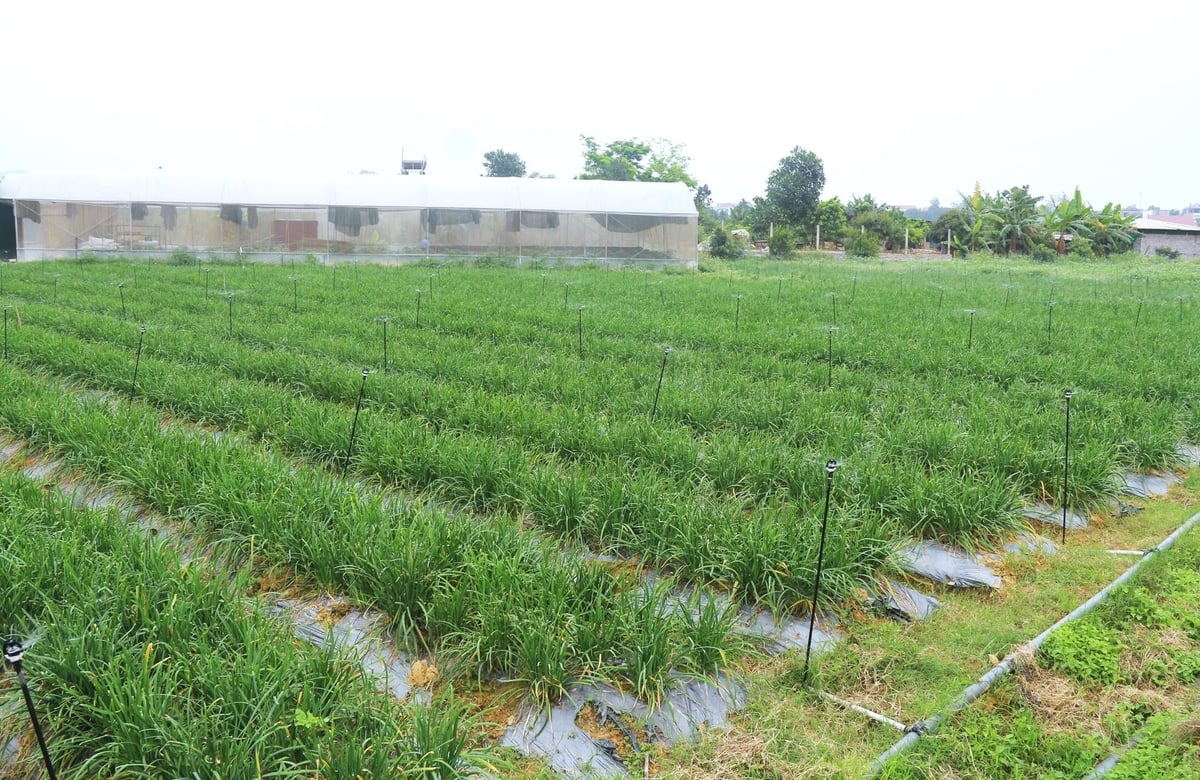
The chive garden is irrigated using an automatic watering system at Dako Farm. Photo: Pham Hieu.
Dako Farm, located in Minh Tri Commune (Soc Son District, Hanoi City), is a typical model of combining scientific and technological applications with a philosophy of natural farming.
Covering an area of 5 hectares, the farm currently grows key agricultural products, including asparagus, Muscat grapes, bell peppers, and onions. Notably, Dako Farm has successfully exported asparagus and bell peppers to South Korea, one of the most demanding markets in terms of quality, food safety, and traceability.
According to agricultural engineer Hoang Hai Minh, founder of Dako Farm, in order to meet the high standards set by South Korean partners, the farm has boldly applied various technical and technological advancements throughout the entire production process, from cultivation and care to harvest and post-harvest handling.
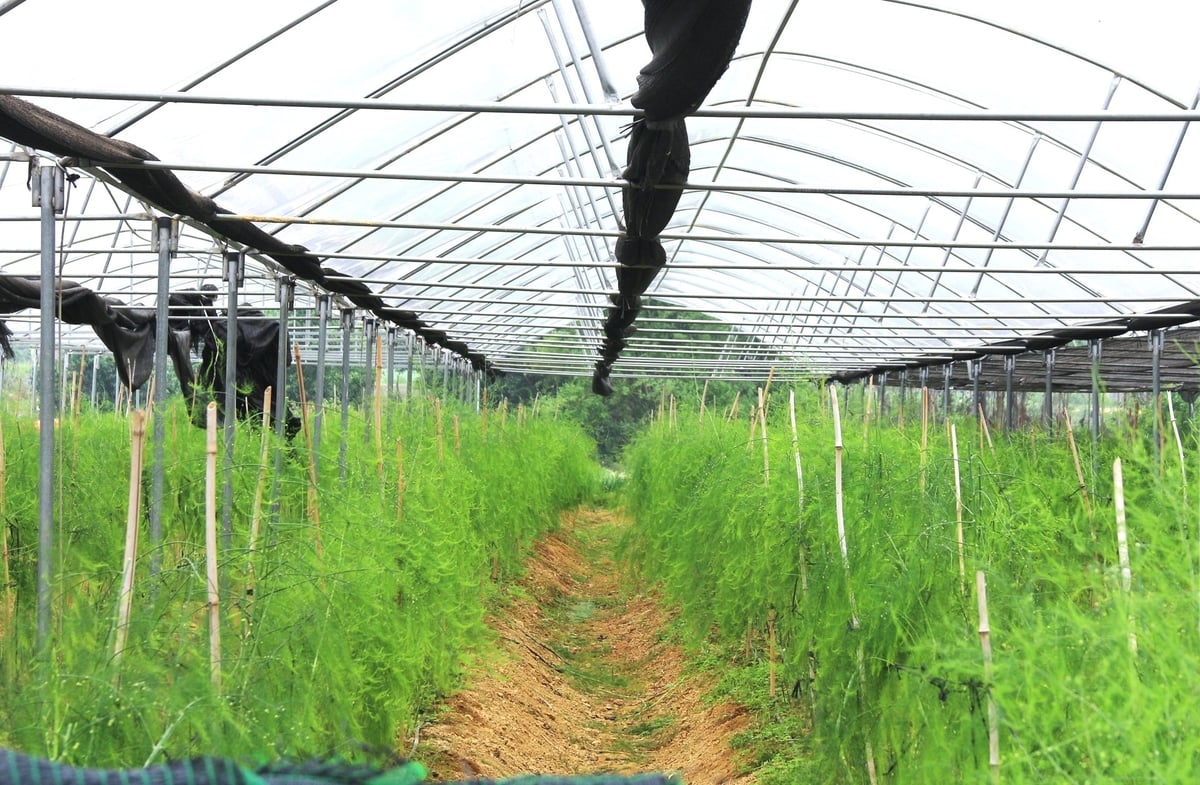
Asparagus is grown in a greenhouse covered with HDPE plastic roofing. Photo: Pham Hieu.
Among these, the modern irrigation system plays a crucial role. The onion field utilizes a sprinkler system, while the Shine Muscat grape vineyard employs a drip irrigation system to ensure precise and uniform water distribution, thereby avoiding both overwatering and underwatering. After a period of trial and improvement, the system is now operating stably and has significantly improved the quality of the crops.
The farm also utilizes greenhouse structures covered with HDPE plastic sheets, which are not fully enclosed to ensure proper ventilation for asparagus and Muscat grapes, crops that are sensitive to high humidity. Rain shielding is also an important technical measure to reduce the impact of acidic rainwater, protect soil structure and pH levels, and minimize the risk of pests and diseases.
Another key highlight in Dako Farm’s cultivation process is the complete elimination of chemical pesticides, replaced by biological preparations made from garlic, chili, ginger, and soapberry extract to prevent pests and diseases.
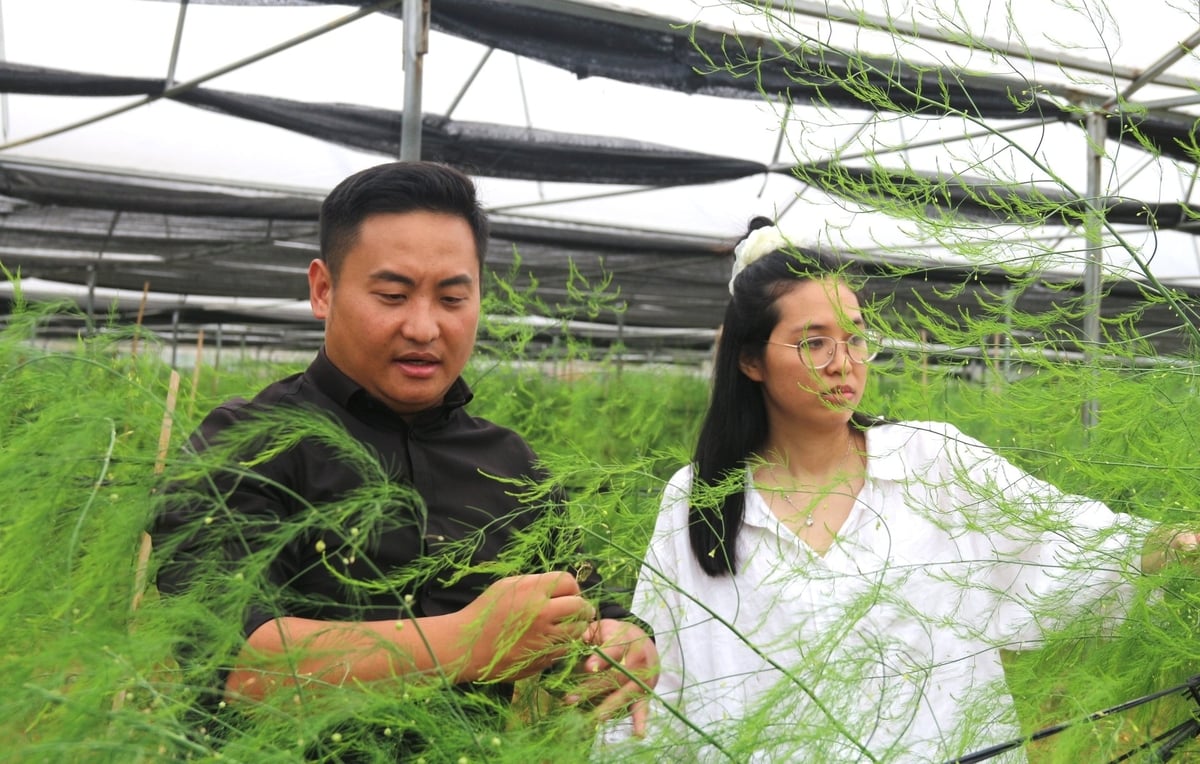
Hoang Hai Minh and Hoang Bich Ngoc Anh inspect the quality of the asparagus plants. Photo: Pham Hieu.
“This is a crucial factor that enables our products to meet South Korea’s strict plant quarantine standards. In addition, before export, the produce is treated with UV light to ensure food safety and extend shelf life,” said Mr. Minh.
Instead of chasing immediate yield, Dako Farm has chosen a strategy of sustainable development. With perennial crops such as asparagus and Shine Muscat grapes, although they begin yielding from the second year, the farm does not rush to harvest but focuses on nurturing root systems and improving soil quality.
Thanks to this approach, the crops can provide stable yields for many years. For example, a single asparagus planting can be harvested continuously for about 10 years. In 2025, Dako Farm expects to harvest about 20 tons of asparagus, 16 to 20 tons of bell peppers, and 100 tons of onions.

The vibrant green asparagus tips from Dako Farm are full of vitality and ready to conquer the South Korean market. Photo: Pham Hieu.
Sharing about the development journey of Dako Farm, Mr. Hoang Hai Minh said he had experimented with various modern models, including using the correct dosage of chemical fertilizers and pesticides, as well as hydroponic systems combined with aquaculture. However, high costs and unsatisfactory results led him to the natural farming approach, where people nurture the soil, the soil nurtures the plants, and the plants nurture people.
“Overusing chemicals leaves long-term consequences for both consumers and workers. With this current approach, I believe not only our generation but also the next will live healthier lives,” Mr. Minh shared.
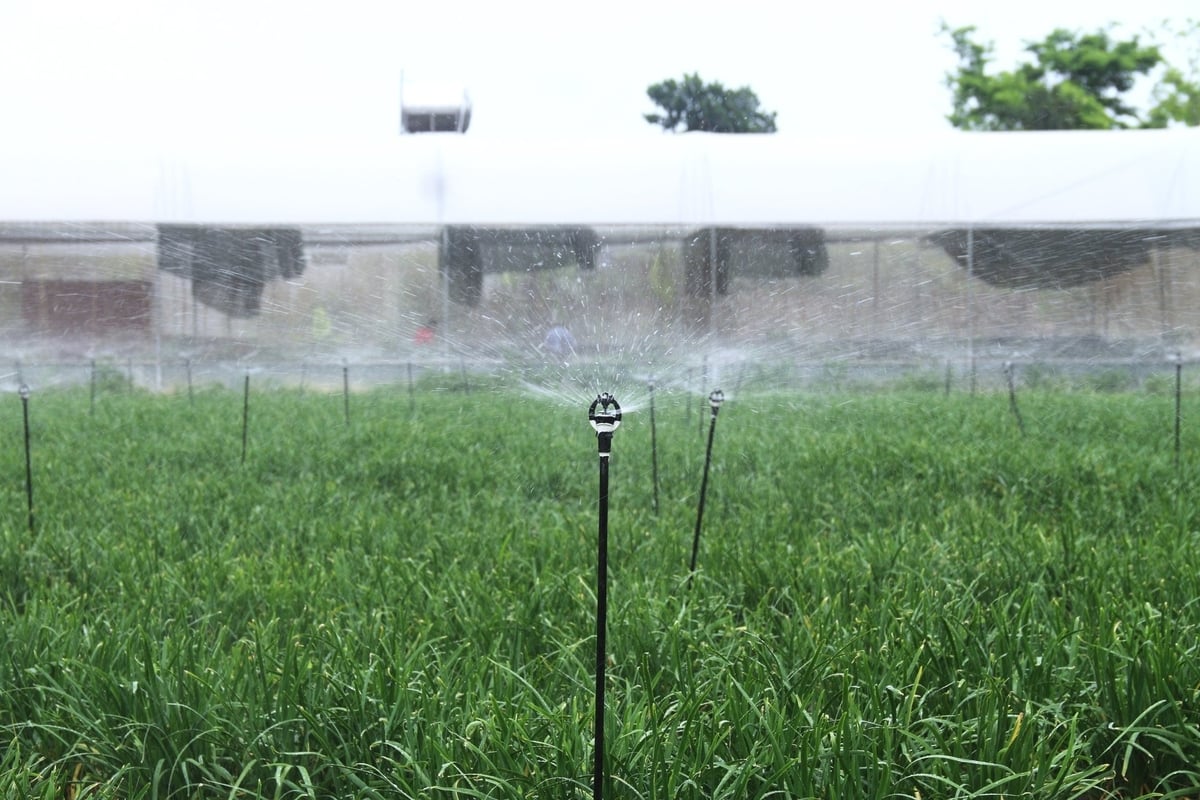
Science, technology, and technical advancements are key drivers in improving the quality and appearance of Vietnamese agricultural products. Photo: Pham Hieu.
According to Ms. Hoang Bich Ngoc Anh, representative of Tomo Thanh Cong Co., Ltd., the operator of a supermarket chain that sources agricultural products from Dako Farm, the farm’s products consistently meet the company’s stringent criteria. These are absolutely safe, fresh products that are strictly controlled from farm to table.
Currently, in major cities, particularly Hanoi, living standards are on the rise. Alongside this is the rapidly increasing demand for safe and organic food. Ms. Anh noted that consumers are willing to pay higher prices for organic produce, as they view it as an investment in their own health and that of their families.
“Dako Farm’s steadfast commitment to natural farming methods without harmful chemicals, combined with the application of technological solutions in production, has enabled its produce to not only meet export standards but also gradually earn the trust of domestic consumers, especially those in high-end urban areas,” Ms. Ngoc Anh commented.
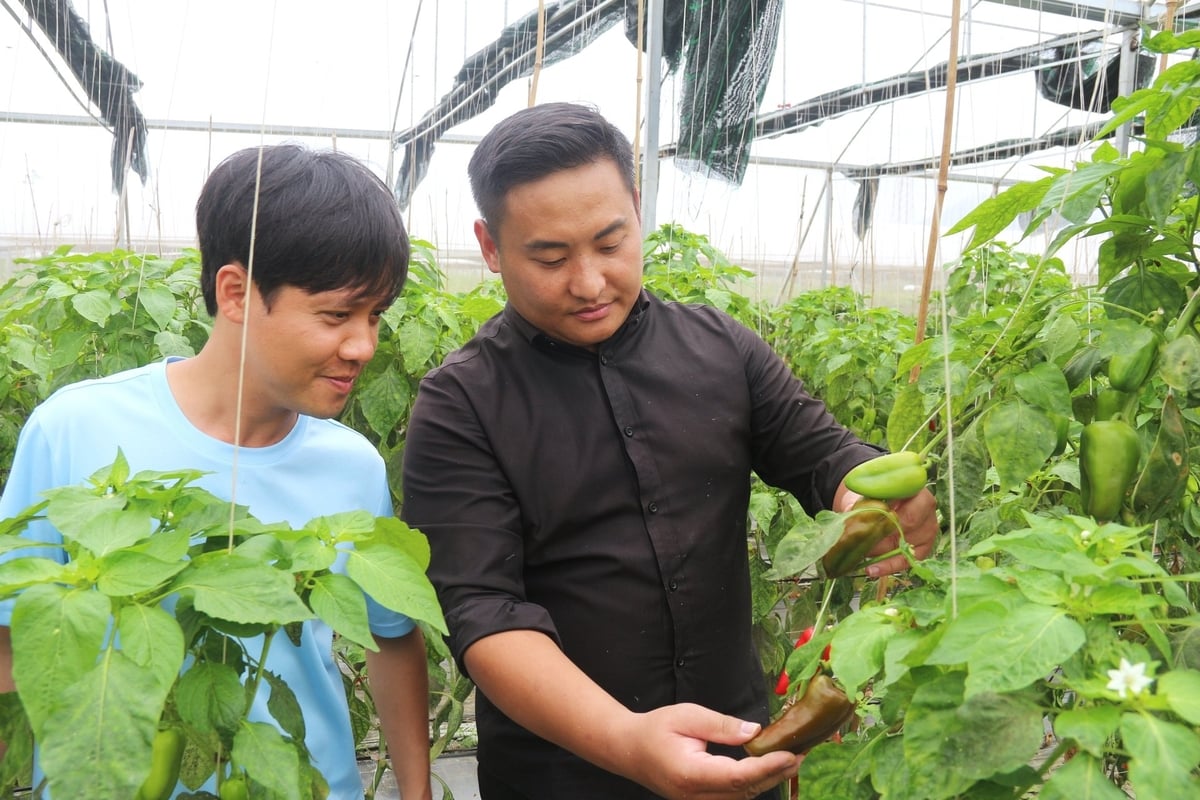
According to Dang Ngoc Thanh (left), Dako Farm’s agricultural products meet the standards for export to the South Korean market. Photo: Pham Hieu.
Sharing about the criteria for exporting agricultural products to South Korea, Mr. Dang Ngoc Thanh, Director of VB VIKO Co., Ltd., a company specializing in agricultural exports, said that some products from Dako Farm have already met the necessary standards to enter the Korean market. The prerequisite is that the products must be safe and comply with strict pesticide residue regulations.
“In addition to quality, packaging, and post-harvest preservation also play important roles. After harvesting, the produce must be carefully sorted according to criteria such as size, color, and shape, and immediately stored in cold storage at ideal temperatures. At Dako Farm, this entire process is strictly implemented, helping to preserve the products’ freshness optimally during export,” Mr. Thanh explained.
Mr. Thanh also noted that Korean consumers have high expectations but also show great interest in Vietnamese agricultural products, especially high-quality seasonal items.
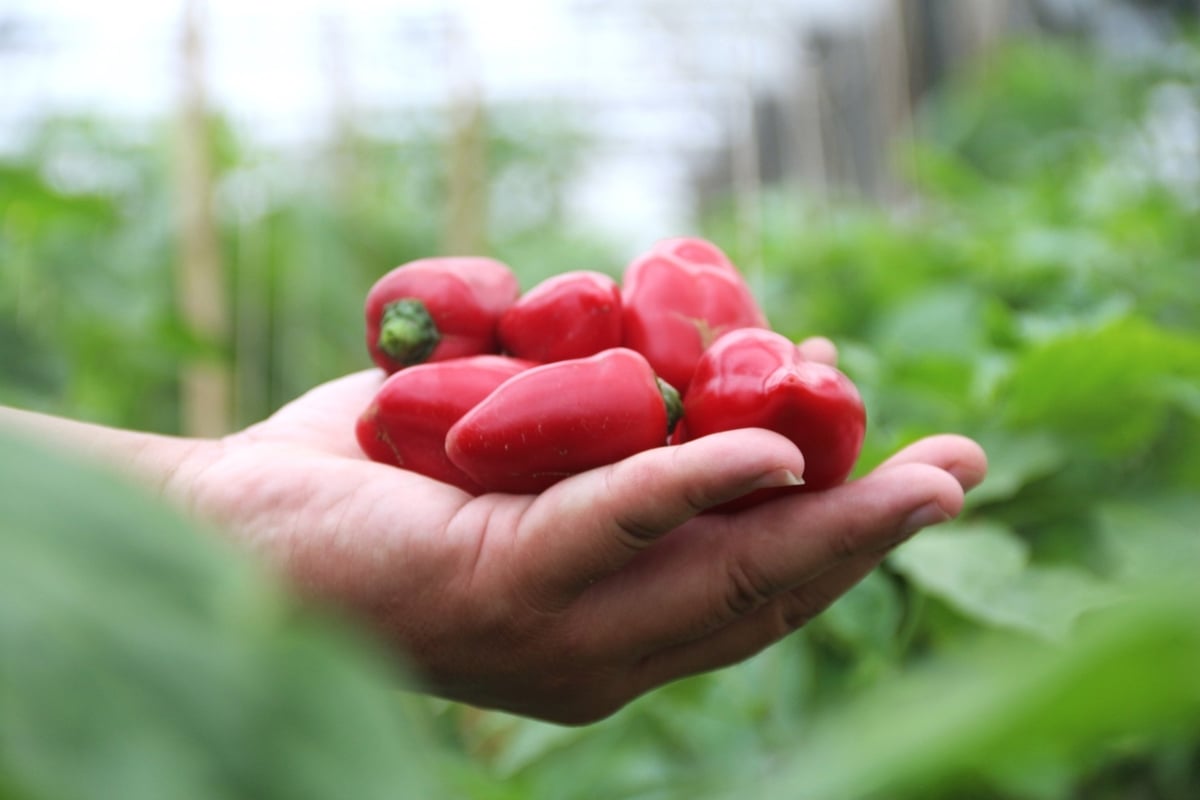
South Korean consumers have shown strong interest in agricultural products from Vietnam. Photo: Pham Hieu.
“The Korean market considers Vietnam a country with strong agricultural potential. Vietnamese farmers are becoming more aware of the importance of maintaining product quality and appearance to improve competitiveness and meet international standards,” Mr. Dang Ngoc Thanh added.
Today, post-harvest and advanced processing technologies such as rapid cooling, irradiation, freeze-drying, and modified atmosphere packaging (MAP) have significantly improved product appearance, extended shelf life, and enhanced added value.
The adoption of digital technologies, particularly IoT and blockchain, also helps increase transparency in the production chain, ensure clear traceability, and comply with food safety standards such as VietGAP, GlobalGAP, or organic certifications.
Translated by Huong Giang

(VAN) The United Nations acknowledges Vietnam's efforts and pledges to support investment in restructuring the energy system in an efficient and sustainable manner.
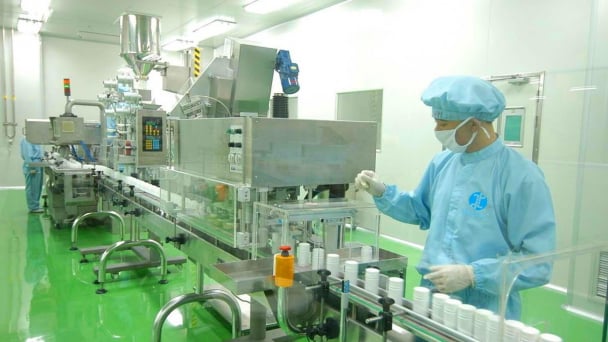
(VAN) With the EU's carbon tax taking effect in 2026, many Vietnamese enterprises are compelled to transition to cleaner technologies, or else face exclusion from the global supply chain.
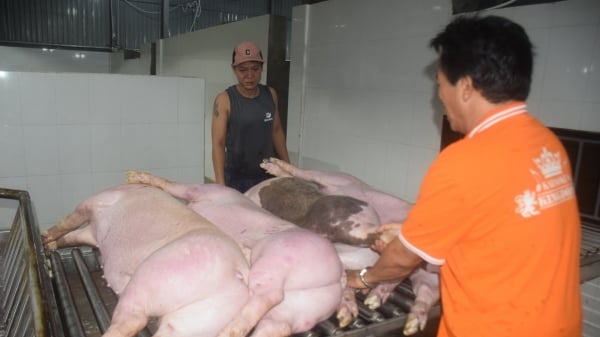
(VAN) Dak Nong finds it difficult to develop concentrated animal slaughterhouses due to the lack of capital, management mechanisms and synchronization.

(VAN) Ministry of Agriculture and Environment aims to sign trade agreements to elevate Vietnam-US agricultural trade cooperation, targeting terms that bring mutual benefits to both parties.
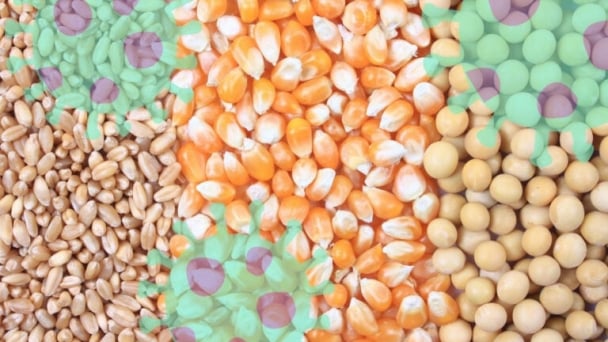
(VAN) Crops contaminated by mycotoxins may be costing poultry organisations more than £150,000 (€178,000) in losses annually.
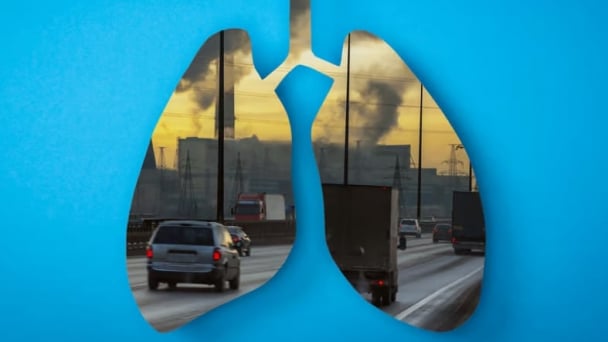
(VAN) New research has identified the mechanism by which air pollution damages the lungs’ self-cleaning system, leaving us vulnerable to infection.